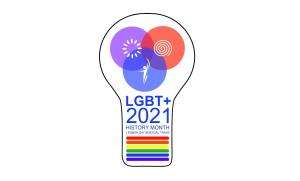SWU Blog: LGBT+ History Month and Ubuntu
SWU supports LGBT+ History Month and its effort to educate out prejudice and make LGBT+ people, in all their rich diversity, visible. The aim of February's LGBT+ History Month to promote equality and diversity for the benefit of the public aligns with the Global Agenda for Social Work & Social Development Framework 2020-2030: ´Co-building Inclusive Social Transformation´. The Global Agenda framework recognizes the need for important changes to take place in the world so that all people are treated equally and can be protagonists of history and their future.
The first theme of the Global Agenda that lays the foundation for this framework is ´Ubuntu: Strengthening Social Solidarity and Global Connectedness´. This recognizes that the lives and futures of all people are intertwined and our destiny is linked. The International Federation of Social Workers (IFSW) said when launching the framework, “Guided by ethical principles, social work and social development practitioners and educators have an essential role to connect people, communities and systems; to co-design and co-build sustainable communities and to promote inclusive social transformation.”
Coming up on March 16, World Social Work Day 2021 is a day when social workers worldwide stand together to advance our common message globally and this year that message is Ubuntu: I am Because We Are. The IFSW stated that, “Ubuntu is a powerful message on the need for solidarity at all levels: within communities, societies and globally. It is a message that all people are interconnected and that our future is dependent on recognizing all peoples involvement in co-building a sustainable, fair and socially just future.”
This solidarity must extend to LGBT+ people because the fight for equality is not over. Some may ask why we still need LGBT+ History Month in the UK with the repeal of Section 28, passing of the Equality Act 2010, legalisation of same-sex marriage, and implementation of the Turing Pardons.
Progress has been made but research and evidence continues to show that LGBT+ people face discrimination, bullying, and harassment in education, at work, and on the streets; hate crime; and higher inequalities in health satisfaction and outcomes. The underreporting of hate crime is a particularly common issue. LGBT+ people can also be unwilling to use relevant services for fear of homophobic or transphobic responses from staff and service users or because they do not think the response will meet their needs.
In an interview with the British Association of Social workers (BASW), Mark Goodman, who is a gay social worker, reflects on the changes he’s seen in his lifetime – such as being able to marry the man he loves – and the challenges we still have to overcome as a society. Mark said in his closing remarks:
“How many of us in our professional lives have sent out a clear message to trans people that all sexualities are respected? How informed and skilled can we each say we are when it comes to the diversity of the lived lives of all those different individuals that we might find ourselves supporting today or tomorrow?
If we don’t understand the message ‘I am Because We Are’ then we have not understood LGBTQ+ history or the histories of anyone who lives a different and diverse life. The point of LGBTQ+ history affects everyone because everyone in their own way is different; promote equality and diversity for the benefit of everyone.”
LGBT+ History Month was first celebrated in the UK in 2005 and continues to be run by founding organiser Schools OUT UK. The Proud Trust has developed the 2021 Resource and Education pack that is free to download and use – in it you may discover many new ideas, and new ways of presenting and thinking about LGBT+ identities.
The LGBT+ History Month website has more free resources that can be used to inform practice, learn about potential barriers LGBT+ people face, and read about their lived experiences. In promoting equality and diversity, we can educate out prejudice.
"Fostering the active participation of all voices, particularly those often marginalized, is at the core for the profession of social work and social development and is essential to co-design and co-build inclusive social transformation."International Federation of Social Workers (IFSW)
